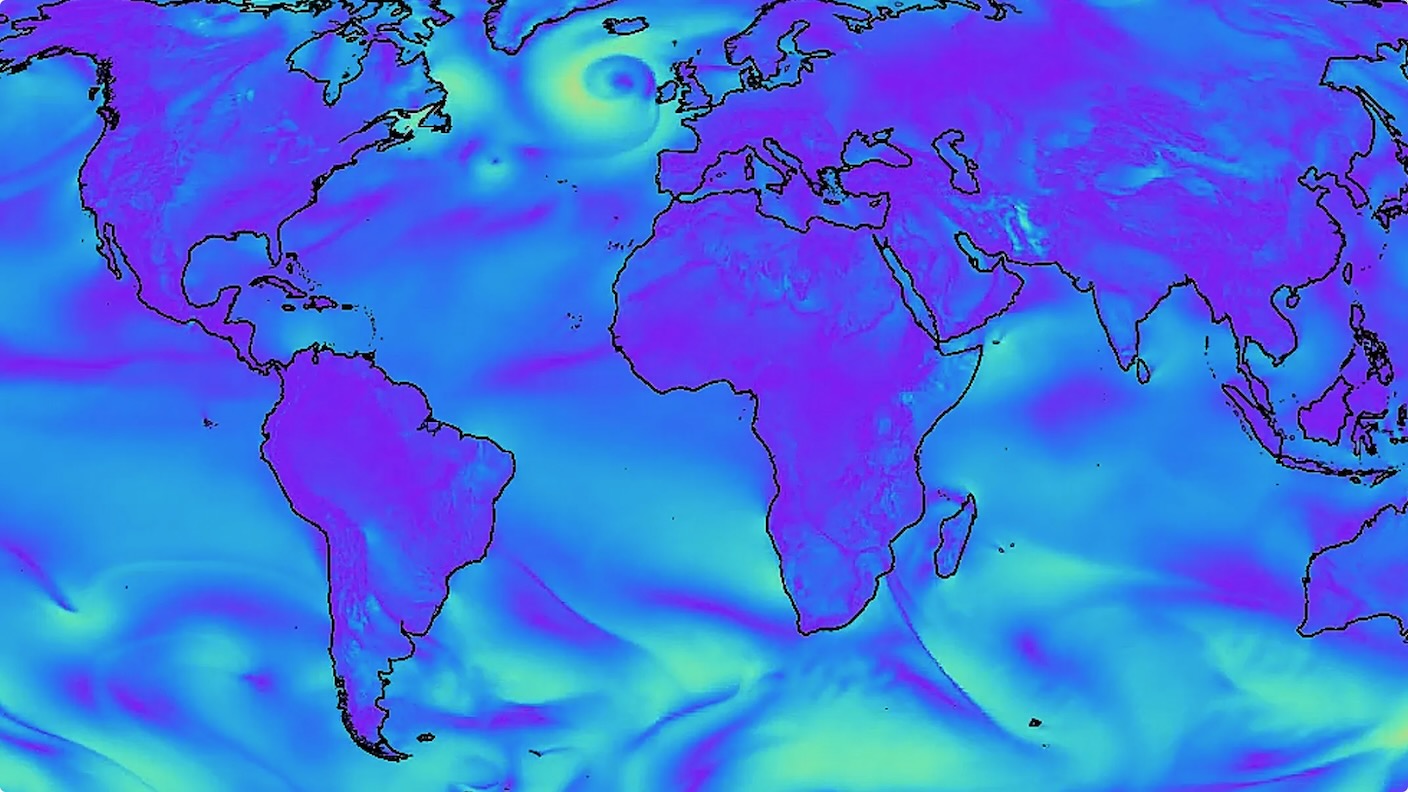This year witnessed a relentless succession of extreme weather events, with the entire planet engulfed in unprecedented heat. The summer of 2024 marked the Earth’s hottest temperatures since 1880, leading to significant disruptions in people’s lives and communities. From flash floods in California to snowstorms in Texas, and devastating wildfires in Maui and Canada, the impact of these weather-related incidents was deeply felt.
The ability to predict such occurrences accurately and swiftly is paramount, with every minute playing a crucial role. In this regard, Artificial Intelligence (AI) emerges as a valuable tool. Recently, Google DeepMind introduced GraphCast, an AI system capable of delivering 10-day temperature forecasts with unparalleled speed and precision. By analyzing hundreds of weather data points for a specific location, GraphCast can generate predictions in under a minute, outperforming existing techniques by up to 90% of the time.
Beyond merely enhancing wardrobe selection through weather apps, GraphCast has demonstrated its capability to identify atmospheric events associated with extreme weather patterns. It excels in tracking cyclone trajectories with greater accuracy than traditional methods and identifying atmospheric rivers linked to flooding. Moreover, GraphCast has shown the foresight to predict the onset of extreme temperatures well in advance, providing communities with valuable time to prepare and mitigate potential risks, especially as the trend towards warmer temperatures and increased extreme weather events continues.
The developers of GraphCast assert that it now stands as the most advanced 10-day global climate modeling system globally, enabling the anticipation of extreme weather events further into the future than ever before.
Looking ahead, weather forecasting remains a challenging yet essential endeavor, influencing various aspects of our daily lives. While current prediction programs rely on sophisticated Earth atmosphere models and physics-based equations processed by supercomputers, the emergence of AI-driven systems like GraphCast offers a novel approach. By eschewing traditional physics-based methods and instead focusing on patterns within historical wind data, GraphCast represents a significant advancement in weather prediction technology.
Built on a neural network framework, GraphCast operates through three main components: a detector that maps relevant data to a complex graph, a processor that analyzes and transmits the data, and a decoder that interprets the results into real-world weather predictions for the next six hours. Crucially, GraphCast leverages its own predictions to continuously improve accuracy over time, a self-learning process akin to conventional forecasting techniques but with enhanced efficiency and speed.
Trained on nearly four decades of historical weather data and covering the entire planet in small patches, GraphCast utilizes information on temperature, humidity, wind speed, and direction at various altitudes to generate precise forecasts. Despite the demanding training process, once operational, GraphCast can produce a 10-day projection in less than a minute using minimal computational resources, surpassing traditional methods that often require hours of processing time.
In comparative tests against established climate prediction models, GraphCast consistently outperformed its counterparts, demonstrating superior accuracy in predicting various weather phenomena, including tropical cyclones, atmospheric rivers, and extreme temperature fluctuations. The system’s early detection capabilities and integration with existing weather tracking tools have proven invaluable in forecasting events like Hurricane Lee’s trajectory, showcasing its potential to complement and enhance traditional forecasting methods rather than replace them.
As GraphCast continues to evolve and undergo testing for broader applications, including collaboration with the European Center for Medium-Range Weather Prediction, its role in shaping the future of climate forecasting appears promising. By leveraging AI technology to navigate the complexities of weather prediction and address increasing uncertainties in weather patterns, GraphCast represents a significant advancement in climate forecasting that could revolutionize emergency response strategies and inform critical policy decisions. The potential synergy between GraphCast and existing weather prediction systems offers a glimpse into a more reliable and informed approach to weather-related decision-making, signaling a transformative shift in climate forecasting practices.






